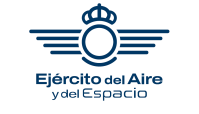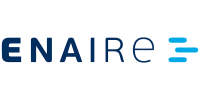Enhanced FAB SW Crossborder Free-Route (Canary)
Timeline

Description
Free Route Airspace (FRA) is a specified airspace within which users may freely plan a route between a defined entry point and a defined exit point, with the possibility to route via intermediate (published or unpublished) significant points, without reference to the Air Traffic Services (ATS) route network, subject to airspace availability. Within this airspace, flights remain subject to air traffic control.
The aim of this work package is to implement an enhanced cross-border free route in Spain ( Canary Islands, Spanish Outermost Region), removing the structural limitations introduced in the early FRA deployment, adapting the Air Traffic Management (ATM) systems on both sides, and adaptation of civil-military structures and procedures, fulfilling the gap for Family 3.2.2 in Spain. The scope includes: design of connectivity and airspace, safety processes, training, and support procedures (fast-time simulations, capacity determination, etc).
Without free route, normal operation is based on pre-defined airways and Direct (DCT) segments that users can use to plan their flights. These airways and DCT segments constrain flows and limit the number of conflict points, but resulting trajectories are not optimized to maximize horizontal efficiency.
In order to comply with the Common Project 1 Regulation, further work to remove structural limitations within Spain is needed.
Cross-border Free Route between Portugal and Spain would introduce significant benefits for users and environment and would also lead both countries to comply with the CP1 requirements on cross-border implementation.
Specific objectives:
- Updating and implementing procedures and processes that eliminate the structural limitations in the initial FRA implementation in Canary Island airspace, enabling the cross-border FRA and connectivity.
- Performing fast-time and real-time simulations to guide the implementation of the cross-border concept, without increasing complexity or reductions in sector capacities.
- Adapting the ATM systems currently in use to accommodate cross-border operation.
- Adapting civil-military structures, operational procedures, and letters of agreement to accommodate cross-border operation.
- Organising the training of technical and operational staff.
In terms of expected results, this work package in combination with WP4, allows the full implementation of FRA in Spain and Portugal. It is a way of overcoming the aviation sector's efficiency, capacity and environmental problems. It is expected to reduce flight times, due to shortening of the routes. This is a significant improvement for the users, and will improve horizontal efficiency KPIs.
Moreover, shortening of planned routes are expected to reduce needs of fuel loaded on planes, and diminish CO2 emissions very significantly.
Simulations done by Eurocontrol and the SDM will allow ENAIRE to make the following savings for a full Portugal-Spain cross-border estimated to be approximately as follows
- 2,3 mln Nautical Miles flown per year (up to 9,125 NM in a peak day)
- 320.000 minutes of flight per year (up 1,250 minutes in a peak day)
- 19,2 mln of tons per year.
- above 60 mln of CO2 per year.
This project is interdependent with the following ENAIRE CEF awarded IPs:
- 2016_036_AF3 “Deployment of SACTA-iTEC”
- 2016_040_AF3 “Upgrade of trajectory management in SACTA-iTEC”
- 2017_049_AF3 “Electronic Flight Strip (EFS) in En-Route and TMA in SACTA System”
- 2017_050_AF3 “Controller Working Position (CWP) upgrade”
Countries involved
Additional Information
- Project Type: Air Navigation Service Provider
- CEF Call Year: 2022
- Civil/Military: CivilMilitary
- Multistakeholder: Yes
- Main AF: AF3 - Flexible ASM and Free Route 2
- Sub AF: S-AF 3.2 Free Route
- Progress Percentage: 15%
